Abstract
In most federal job training and employment programs, trainees' pay is not contingent on job performance, but upon physical presence. This study sought to increase the job performance of seven Neighborhood Youth Corps workers being paid an hourly wage for serving as aides in an urban recreation program. When thorough job descriptions and threatened termination of employment were insufficient to maintain adequate job performance, an attempt was made to make the hourly wage (required by the Neighborhood Youth Corps program) more contingent on job performance. When the number of hours credited the workers on their payroll sheets was proportional to their rating on a simple checklist of job performance, rather than to the number of hours they were present, their job performance was maintained at near-perfect levels. Although this simple semantic shift in emphasis—from “hours worked” to “hours worked”—was still interpreted as meeting the Neighborhood Youth Corps requirements for hourly pay, its behavioral effects were substantial. This simple procedure might be used in other training programs handicapped by hourly wage requirements.
Full text
PDF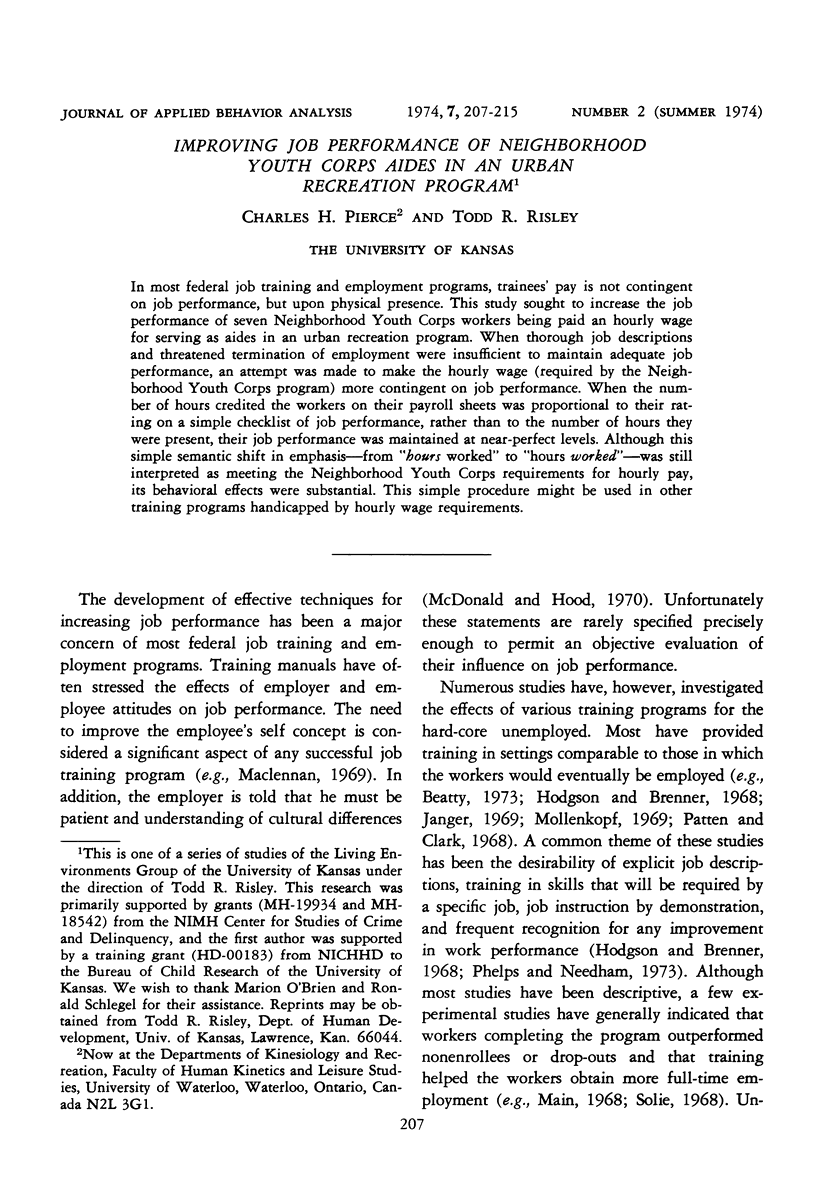
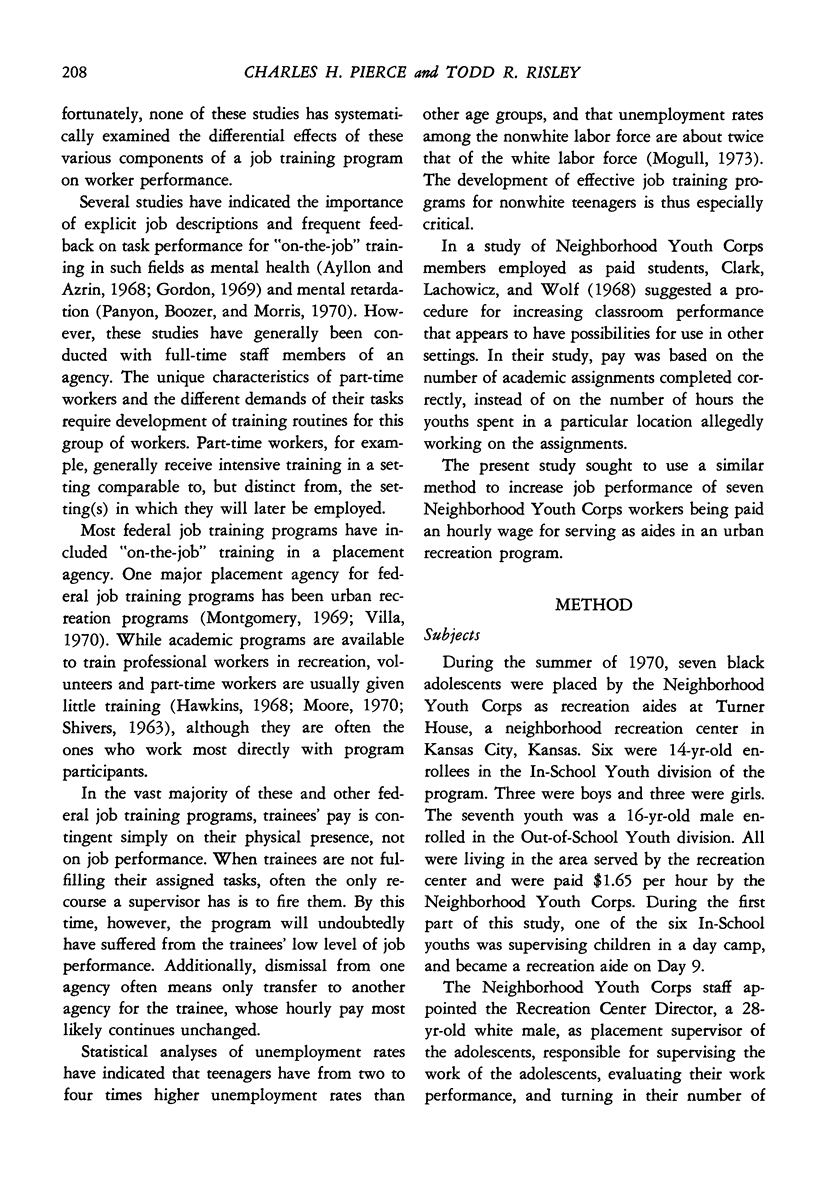
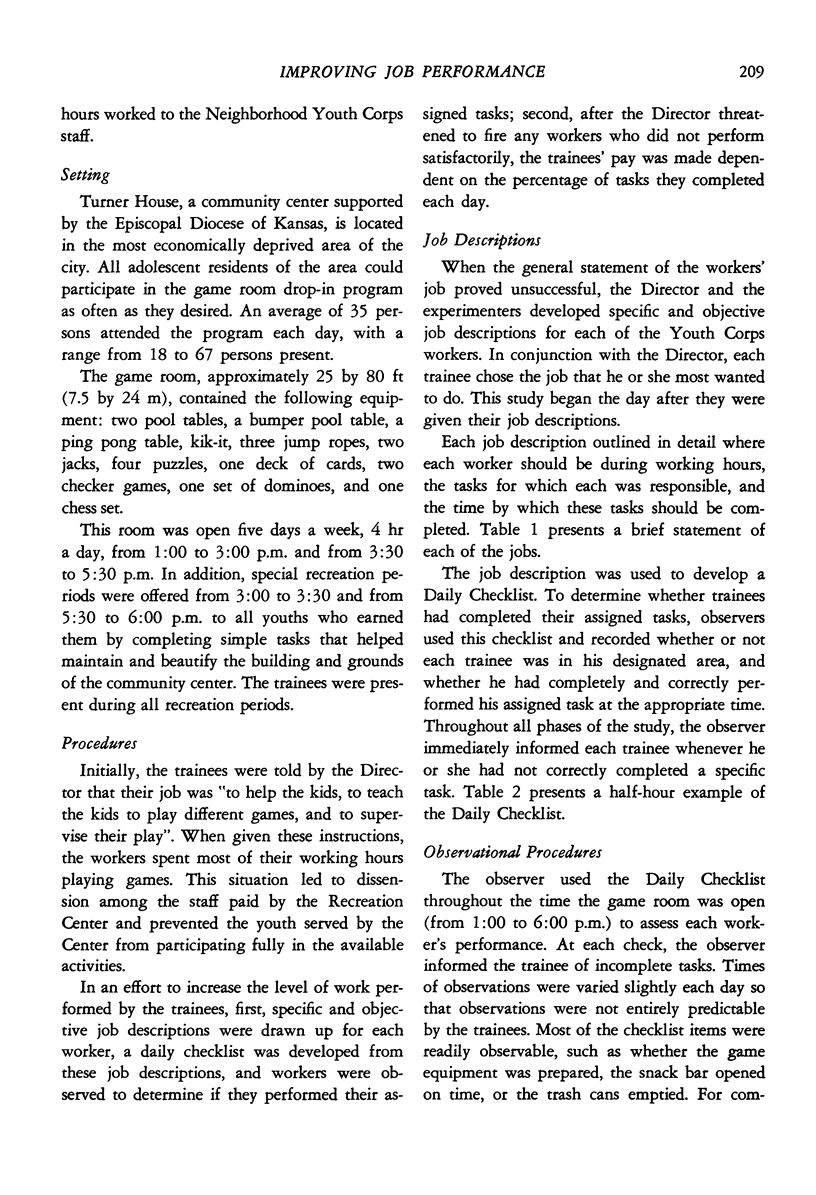
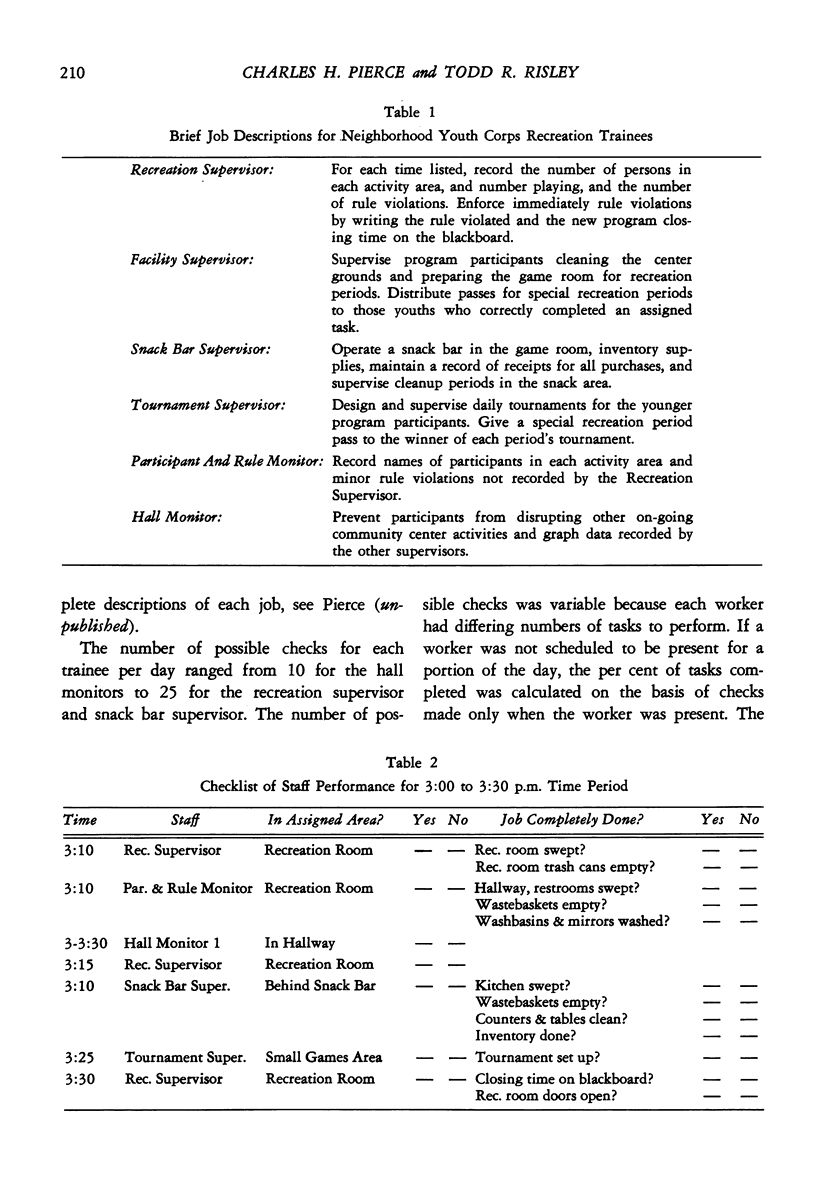
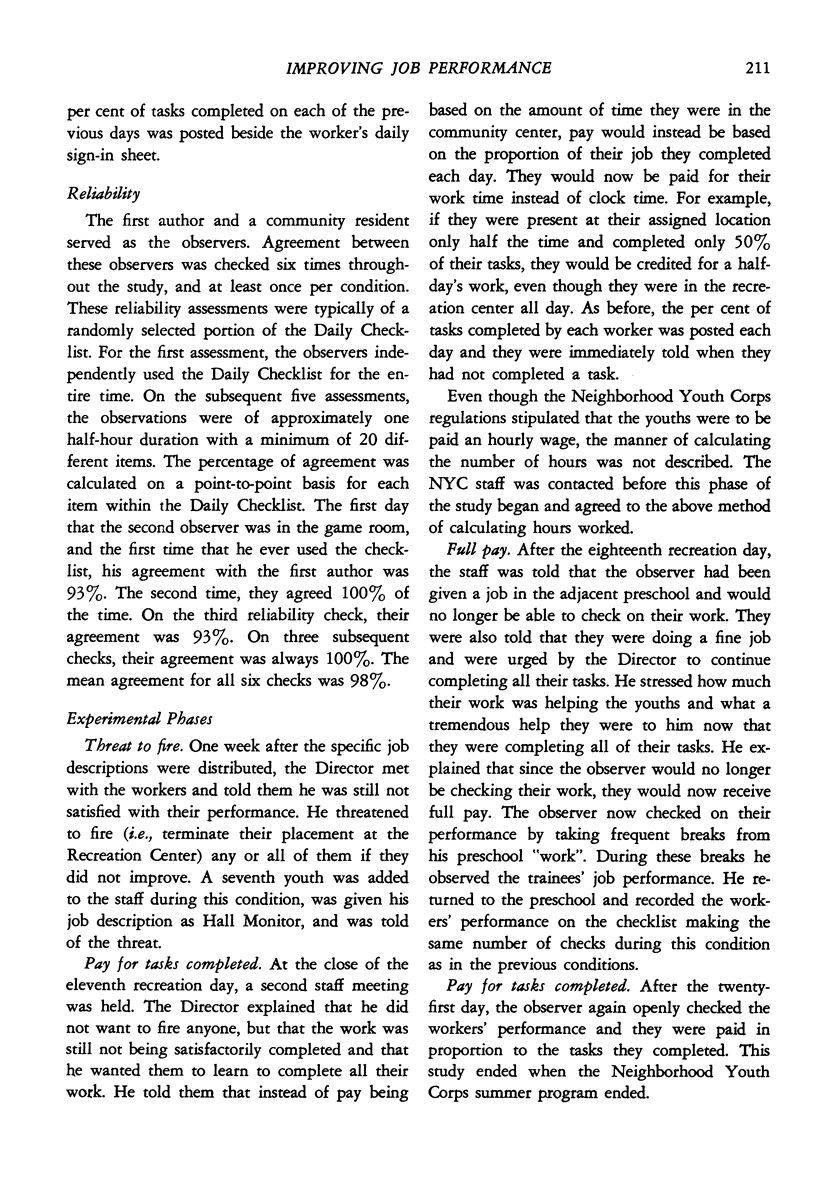
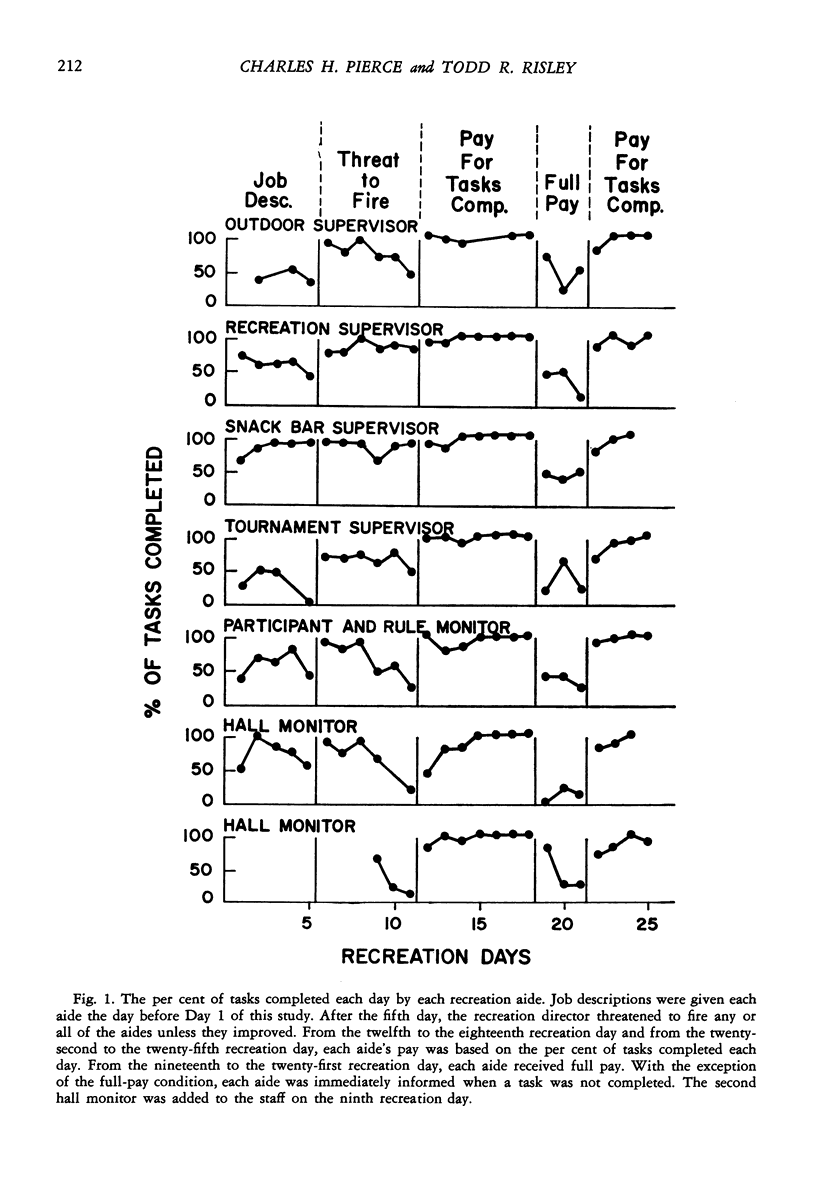
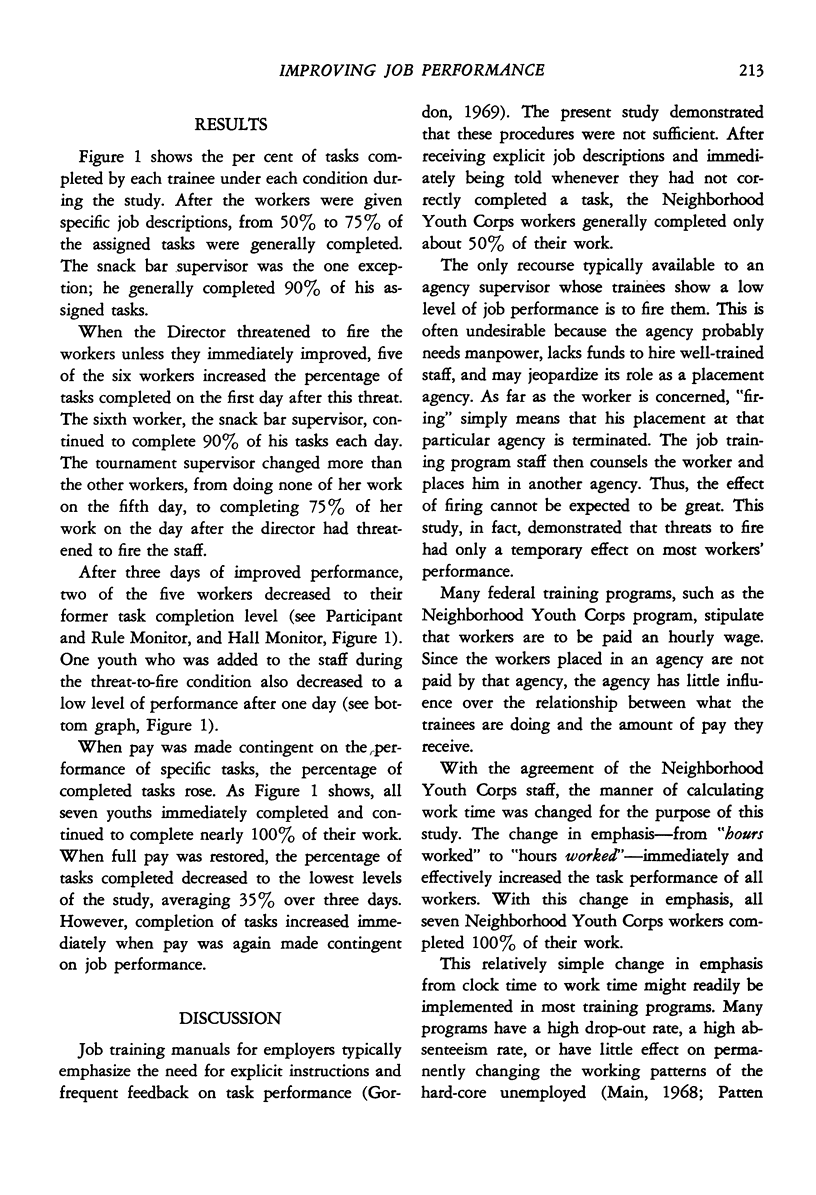
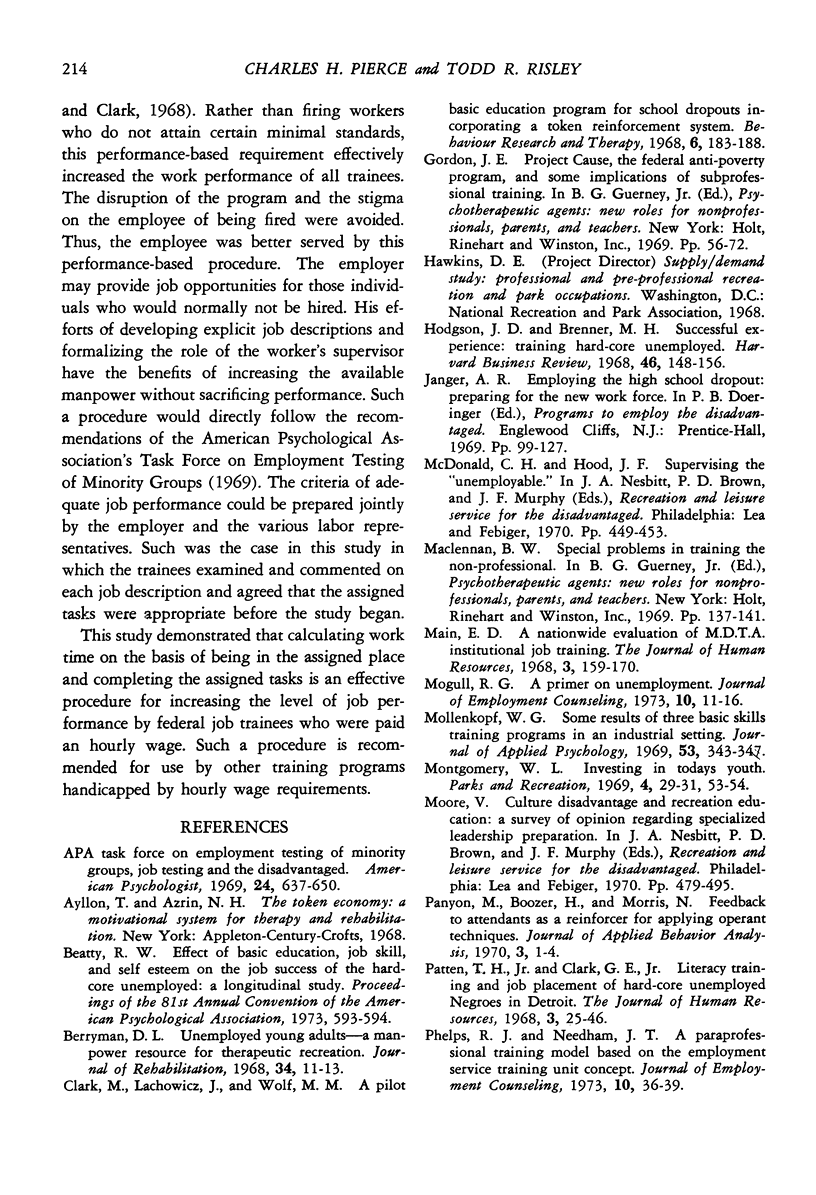

Selected References
These references are in PubMed. This may not be the complete list of references from this article.
- Clark M., Lachowicz J., Wolf M. A pilot basic education program for school dropouts incorporating a token reinforcement system. Behav Res Ther. 1968 May;6(2):183–188. doi: 10.1016/0005-7967(68)90005-3. [DOI] [PubMed] [Google Scholar]
- Panyan M., Boozer H., Morris N. Feedback to attendants as a reinforcer for applying operant techniques. J Appl Behav Anal. 1970 Spring;3(1):1–4. doi: 10.1901/jaba.1970.3-1. [DOI] [PMC free article] [PubMed] [Google Scholar]


